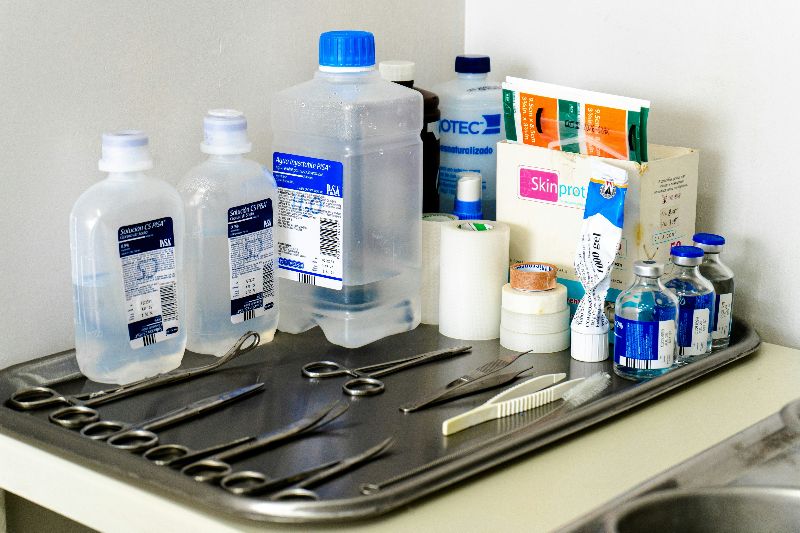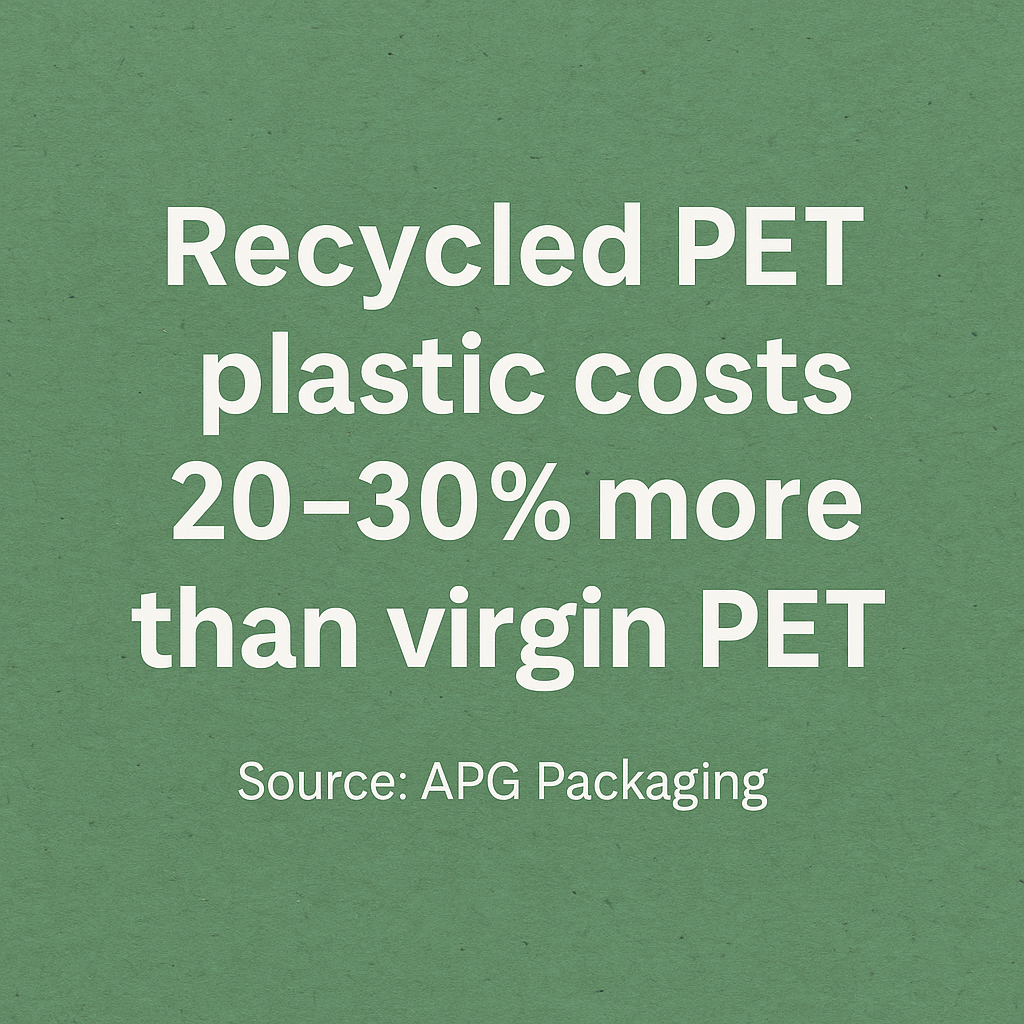When we think about sustainability, recycling is often the first idea that comes to mind. We place bottles, cans, and cardboard into a bin and feel we’ve done our part. But the truth is more complicated. Recycling is important, yet it often fails to deliver the impact we expect.
The reason isn’t technology—it’s economics.
The Price Problem
Markets for recycled materials are shaped not by goodwill but by cost and convenience. Let’s look at three common materials:
- Plastic (PET): Food-grade recycled PET plastic costs 20–30% more than virgin PET (APG Packaging). For manufacturers under constant pressure to reduce costs, that price premium is often prohibitive.
- Aluminum: Recycled aluminum uses 95% less energy than virgin aluminum (Aluminum Association), yet it typically sells at the same price as virgin. Without a cost advantage, most companies default to virgin aluminum.
- Cardboard: Recycled cardboard can cut energy use by about 25% (Green Citizen), creating small but real price savings. That’s why cardboard is one of the few recycled materials widely adopted.
The pattern is clear: when recycled inputs cost more—or even the same—most companies buy virgin materials.

Why the System Is Stacked Against Recycling
Recycling struggles because the playing field is uneven:
️ Virgin resource extraction is subsidized and under-regulated. Fossil fuel subsidies keep plastics artificially cheap.
Most products are not designed for recycling. Packaging and medical supplies, for example, often mix plastics and adhesives in ways that make recovery impossible.
️ Infrastructure is weak. Many regions lack reliable collection and processing systems, meaning even recyclable items end up in landfills or incinerators.
This isn’t a failure of consumers—it’s a systemic failure. And it’s why prevention, not just recycling, must be the focus.
Solutions Within Reach
Recycling can succeed, but only when paired with structural reforms and smarter design. Three proven strategies stand out:
1️⃣ End subsidies for virgin resource extraction and price carbon realistically. This levels the playing field by reflecting the true environmental cost of virgin materials.
2️⃣ Mandate recycled content. Clear rules requiring a percentage of recycled inputs in products create steady demand for recycled material.
3️⃣ Reward design for recyclability. Eco-modulated fees and procurement incentives encourage companies to design products that can be recycled cost-effectively.
These solutions are not futuristic—they are actionable today.
What This Means for Healthcare Practices
Healthcare generates enormous volumes of waste, from packaging to single-use supplies. While recycling programs exist, they cannot solve the fundamental problem: most materials were never designed with recovery in mind.
At My Green Doctor, our consulting services help practices step beyond “put a recycling bin in the break room.” We guide clinics to:
- Prevent waste at the source by choosing suppliers with recyclable and reusable options.
- Redesign procurement to favor cost-saving, sustainable alternatives.
- Integrate sustainability into operations, from purchasing to patient education.
- Build resilience and credibility by demonstrating environmental leadership to patients, staff, and communities.
The financial benefits are real. Prevention reduces costs tied to disposal, supply inefficiencies, and energy use. The reputational benefits are equally important: patients trust providers who lead by example in protecting both health and the environment.
Prevention Is Key
Recycling has a role to play—but prevention is the most powerful, cost-effective sustainability tool we have. By shifting the focus from “end of life” recycling to smarter procurement and operations, healthcare practices can save money, cut emissions, and show real climate leadership.
Because the best waste is no waste. And prevention is the real solution.
Sources:
APG Packaging. PCR Myths vs. Reality. 2024.
The Aluminum Association. Recycling Facts. 2024.
Green Citizen. Cardboard Recycling Guide. 2023.


